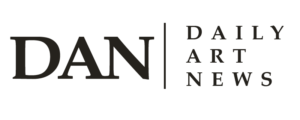The American Folk Art Museum presents "Unexpected Partners: Self-Taught Art and Modernism in Interwar America," in collaboration with Stanford University's Department of Art & Art History on January 27, 2023, 11am–5pm EST.
The virtual symposium, held in conjunction with the exhibition Morris Hirshfield Rediscovered (September 23, 2022-January 29, 2023), examines modernism’s complex interaction with self-taught art in the United States during the mid-twentieth century. The program includes speeches and panel discussions with top academics, curators, and art historians from various geographical and cultural contexts.
Speakers include: Bill Anthes, Esther Adler, Susan Davidson, Julia Bryan-Wilson, Lynne Cooke, Jane Kallir, Jennifer Jane Marshall, Richard Meyer, Angela Miller, Rodrigo Moura, Marci Kwon, Valérie Rousseau, Nicole Smythe-Johnson and Brooke Wyatt.
This program is free and registration is required. Click on the RSVP link above to reserve your spot.
Program
Morris Hirshfield was never anticipated to create history because he had minimal formal education and no connection to elite culture. His work was admired by avant-garde artists such as Pablo Picasso, Piet Mondrian, and Marcel Duchamp, and was displayed by dealer and collectors Sidney Janis and Peggy Guggenheim in a highly recognized one-person show at the Museum of Modern Art in 1943. Nonetheless, Hirshfield was frequently viewed by critics as an uneducated novice and criticized for his penchant for displaying figures in unconventional ways.
“Unexpected Partners: Self-Taught Art and Modernism in Interwar America” will look at Hirshfield’s work as well as that of other unconventional artists like John Dunkley, William Edmondson, Oscar Howe, John Kane, Séraphine Louis, and Bill Traylor, who were praised for their originality of vision while being “primitivized” by both supporters and detractors for their perceived distance from Western elite culture. Speakers will discuss the contradictions that arose as a result of gestures of inclusivity that both encouraged and pigeonholed artists.
The symposium revisits the interwar period through new research into significant incidents, revealing a more variegated cultural past than is commonly known. Speakers will highlight the significant contributions that disadvantaged practitioners—particularly those from the BIPOC, immigrant, and disability communities—made to the development of modernism in the United States, redressing these artists’ progressive omission from the postwar art-historical canon. Speakers will also consider what remained at risk in establishing a divide between vanguard and self-taught art, despite its tensions.
You May Also Like
Schedule
11am
Jason T. Busch, American Folk Art Museum
Introduction
Richard Meyer, Stanford University
Keynote
11:30am
Session 1: “Modern Primitives”
Introduced and moderated by Esther Adler (Museum of Modern Art), followed by a brief discussion.
Jennifer Jane Marshall, University of Minnesota
“William Edmondson at MOMA, 1937”
Brooke Wyatt, American Folk Art Museum/University of Pittsburgh
“Compensating for the Lacunae of Modern Art: Séraphine Louis and French Self-Taught Painters in Modernist Discourse”
Susan Davidson, independent curator
“The Master of The Two Left Feet Steps Out in Manhattan”
1pm
Session 2: The Inside/Outside Conundrum
Introduced and moderated by Valérie Rousseau (American Folk Art Museum), followed by a brief discussion.
Lynne Cooke, National Gallery of Art
“Autodidact: ‘only a matter of degree’?”
Bill Anthes, Pitzer College
“Painting Against Primitivism: Oscar Howe’s Modern Dakota Art”
Marci Kwon, Stanford University/Cantor Art Center’s Asian American Art Initiative
“Education and Incarceration in Midcentury America”
3pm
Session 3: Remapping Modernisms
Introduced and moderated by Angela Miller (Washington University in St. Louis), followed by a brief discussion.
Nicole Smythe-Johnson, independent curator
“In search of a Subaltern Modernism: Rethinking John Dunkley”
Rodrigo Moura, El Museo del Barrio
“A Global Naïve? Notes on the Brazilian Case”
Julia Bryan-Wilson, Columbia University/Museu de Arte de São Paulo
“Embellishment as Method”
4:30pm
Jane Kallir, The Kallir Research Institute
Closing remarks


![Hermann Landshoff, André Breton, Marcel Duchamp, Max Ernst [standing behind Morris Hirshfield’s Nude at the Window (Hot Night in July)], and Leonora Carrington (seated) at Peggy Guggenheim’s townhouse, Fall 1942, New York, NY. Digital print (original: gelatin silver print, 60 x 60 inches). © bpk. Digital image: bpk-Bildagentur/Münchner Stadtmuseum/Hermann Landshoff/Art Resource, New York.](https://dailyart.news/wp-content/plugins/trx_addons/components/lazy-load/images/placeholder.png)